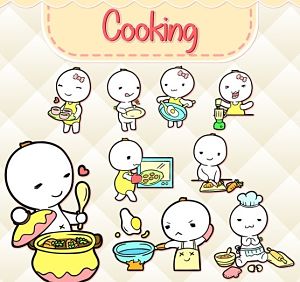| Do you have time on your hands now that you’re social distancing, or working from home, or collecting a benefit? What do you do with that discretionary time? Many people gravitate to their favourite hobbies or interests or explore new ones. These activities often reveal a lot about your natural talents and motivations, and the kind of work you might be best suited for, excel in, and be rewarded accordingly. Let me give you an example. With so many of us at home, we know that more people are learning to cook or re-discovering their love of cooking. That doesn’t mean you should rush off to be a chef or short order cook (even if you could find a restaurant that was open!) It’s a simple enough activity…but it often reveals natural talents or hidden strengths that can open the door to new career opportunities! By closely examining what it is that you truly enjoy about cooking, the thing or things that come easily to you or give you great satisfaction provide clues to your motivational pattern. Over the years, I have seen the following talents and motivations appear in the stories of clients and what they truly love about cooking: – “I will think about some new ideas about food and come up with new recipes.” This knack for coming up with new recipes might reveal a natural talent for innovation for designing or developing and giving shape to new ideas. – “I never follow a recipe but always use what’s available in my kitchen.” This might be a reasoning talent for combining, mixing, harmonizing, or integrating—bringing together diverse parts or elements to form a new whole. – “I have all the tools and equipment in my kitchen, everything ready at hand, clean, and ready to go.” The inclination might show a talent for ordering one’s personal space, for sensing the most efficient positioning of materials for easy retrieval, and for maintaining things in their proper place (but does not necessarily include the ability to order space for others). – “I like cooking but not for myself. What I really enjoy is the presentation of the food to my family or a group of people, that’s what I enjoy most.” This might reveal a person’s preference to work with Sensory subject matter in a visual manner in order to create a space where s/he feels comfortable socializing with a familiar group of people. – “I like cooking but baking is what I really enjoy, especially decorating my cakes and sweets.” This person may have a understanding how objects and shapes affect people’s moods and feelings, like someone adept at sculpting in wood, clay or stone objects, or an architect or UI/UX designer. I want to be clear: one of these talents by itself may not mean much unless it is viewed in the context of a bigger picture, i.e. your total motivational pattern. If you have a particular talent or motivation, it will show up in many of your enjoyable activities–both at work and home–and it will be linked to other elements in the motivational pattern, such as their natural talents, preferred subject matter, natural way of relating with others, the situations that motivate them and what it is they are trying to accomplish when they do what they enjoy most and do best. So…if you find yourself with time on your hands and gravitating to certain activities that you might think are quite ordinary or mundane but truly enjoy—such as gardening, photography, needlework, car repair, word games, collecting things, rearranging home furniture, budgeting, gaming, electronic kits, model building*—you are using some of your motivational pattern. Furthermore, if you want to know how these talents and motivations might help you develop your career in certain directions, use a simple career assessment process like my JobJoy Story assessment tool to help you identify and define your motivational pattern. *If you’d like a list of a 100+ hobbies and interests that you might’ve forgotten how much you enjoy, email me and I’ll send it to you. |
How Covid Time Unlocks Career Options
Examples of what you enjoy about cooking can reveal natural strengths and motivations that can unlock career choices.










